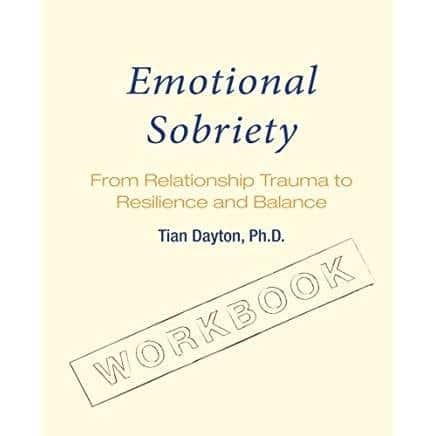Grief is normal, and it is a direct result of attachment and love. There is really no one-size-fits-all approach to grief. Still, normal grief tends to follow a pattern, whereas complicated or what psychologists refer to as disenfranchised losses can go underground and truthfully never get processed at all. This is when grief becomes what is referred to as complicated and can block our enjoyment of life and even undermine our ability to be intimate.
Grief over losses that are disenfranchised or out of the normal stream can make us feel out of synch with the world around us, and can undermine a sense of normalcy and dignity. This tends to push pain and resentment downward rather than allowing it to come up and out.
Normal grief has a dignity that allows the griever the freedom to experience her emotions and feel accepted and understood by her surrounding communities. But hidden losses are a different story. Unlike with a death loss, there is no funeral to acknowledge and honor the loss, no grave to visit, no covered dishes dropped at the door, nor sitting in the company of fellow mourners and supporting each other through the tears. Instead, these hidden losses live in unmarked graves within people and family systems who often avoid discussing them. As a result, the pain becomes covert rather than overt. Processing these losses can allow us to make them real and visit them in the here and now. It provides an alternative form of ritual for the kinds of losses that often go unrecognized and unacknowledged.
When the loss begins to evidence symptoms of a complication, that is, when a current loss triggers emotional states from previous losses. These triggered emotions leak out in ways that make us feel vulnerable or emerge as inappropriate anger, pain, depression, or resentment. We may need to take a deeper look at what might be going on.
A surprisingly large number of life events go ungrieved, and thus they become disenfranchised. Some examples of these losses are:
- The effects of divorce on spouses, children and the family unit.
- Dysfunction in the home, loss of comfortable and predictable family life.
- Addiction, loss of periods of one’s life to using and abusing.
- Addiction in the home, the loss of a happy home life, and the pain of watching a loved one slowly destroy themselves.
- Loss of the addictive substance or behavior for an addict.
- Loss of job, health, youth, children in the home, retirement, life transitions (if they trigger other losses or are overwhelming due to difficult circumstances).
If we cannot mourn these types of losses, we may:
- Stay stuck in anger, pain, and resentment.
- Lose access to important parts of our inner, feeling world.
- We have trouble engaging in new relationships because we are still actively linked with a person or situation no longer present.
- Project unfelt, unresolved grief onto any situation, placing those feelings where they do not belong.
- Lose personal history along with the unmourned person or situation; a part of us dies, too.
- Carry deep fears of subsequent abandonment.
Grief Self Test
Think of a loss that you wish to explore. Rate your answers to the following questions from one to ten. (the following two exercises are excerpted from Emotional Sobriety Workbookhttps://www.amazon.com/Emotional-Sobriety-Workbook-Relationship…/B01K16761S )
1.To what degree do you experience unresolved emotions surrounding this loss?
1 2 3 4 5 6 7 8 9 10
2. How disruptive was this loss to your daily routines?
1 2 3 4 5 6 7 8 9 10
3. How much depression do you feel?
1 2 3 4 5 6 7 8 9 10
4. How much yearning do you feel?
1 2 3 4 5 6 7 8 9 10
5. How much emotional constriction do you experience?
1 2 3 4 5 6 7 8 9 10
6. How much sadness do you feel?
1 2 3 4 5 6 7 8 9 10
7. How much anger do you feel?
1 2 3 4 5 6 7 8 9 10
8. How much ghosting (continued psychic presence) of the lost person, situation, or part of self do you feel?
1 2 3 4 5 6 7 8 9 10
9. How much fear of the future do you feel?
1 2 3 4 5 6 7 8 9 10
10. How much trouble are you having organizing yourself?
1 2 3 4 5 6 7 8 9 10
11. How uninterested in your life do you feel?
1 2 3 4 5 6 7 8 9 10
12. How much old, unresolved grief is being activated and remembered as a result of this current issue?
1 2 3 4 5 6 7 8 9 10
13. How tired do you feel?
1 2 3 4 5 6 7 8 9 10
14. How much hope do you feel about your life and the future?
1 2 3 4 5 6 7 8 9 10
15. How much regret do you feel?
1 2 3 4 5 6 7 8 9 10
16. How much self-recrimination do you feel?
1 2 3 4 5 6 7 8 9 10
17. How much shame or embarrassment do you feel?
1 2 3 4 5 6 7 8 9 10
Stages of the Grief Process
On a separate paper or tablet, write a few phrases or sentences that describe your feelings around each stage as they relate to the grief issue(s) that you are exploring.
- Numbness and Shut Down (nature’s way of preserving us so that we can function) Describe the feelings that went on hold.
- Yearning and Searching: Describe the feelings of longing for what was lost.
- Disorganization and Despair: Describe ways in which your life may feel disorganized by your loss and any feelings of sadness or despair that you may be feeling because of that.
- Reorganization and Integration: Describe how you feel you are integrating your loss and moving on in your life.
- Reinvestment: Describe ways in which you are reinvesting the freed-up energy in your current life that you have as a result of having grieved.
We grieve because we love or because we’re attached, and all of this is simply part of being human. Exploring your feelings around grief, whether it’s normal or disenfranchised grief, can come as a great relief. If it makes you feel vulnerable, like taking a nap or doing something that feels soothing, it is working, relax, and let go, these are just feelings, and this too shall pass.
If you wish to listen to a guided imagery in order to process pain and feel soothed around it, log onto tiandayton.com and go to guided imageries. And then do something relaxing, soothing and kind to yourself!



